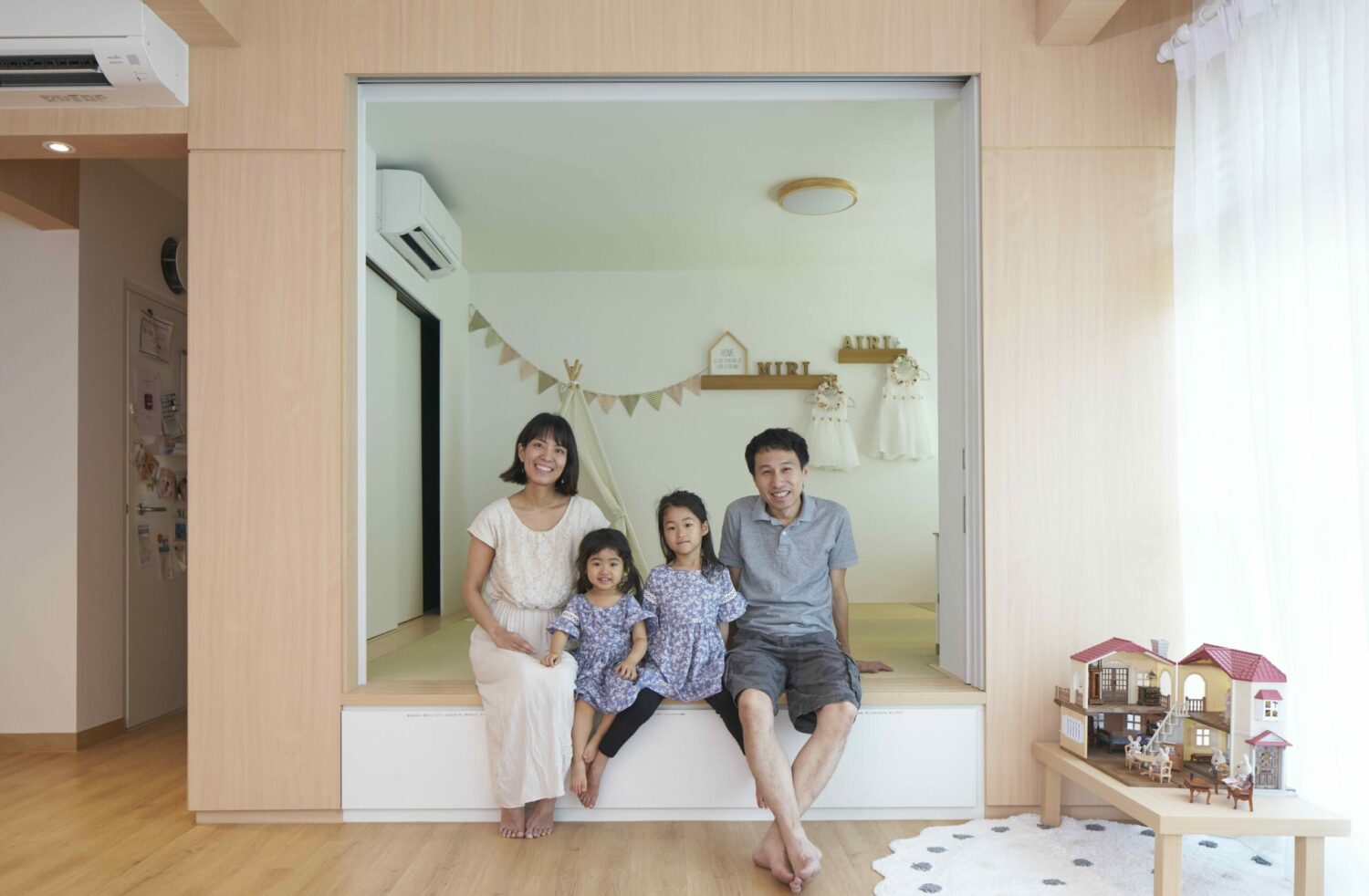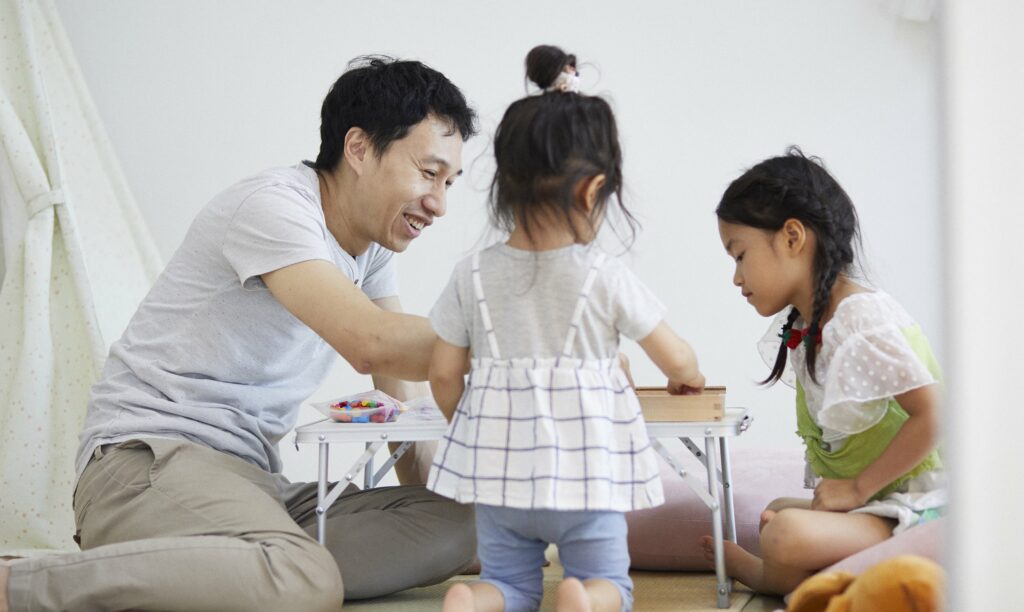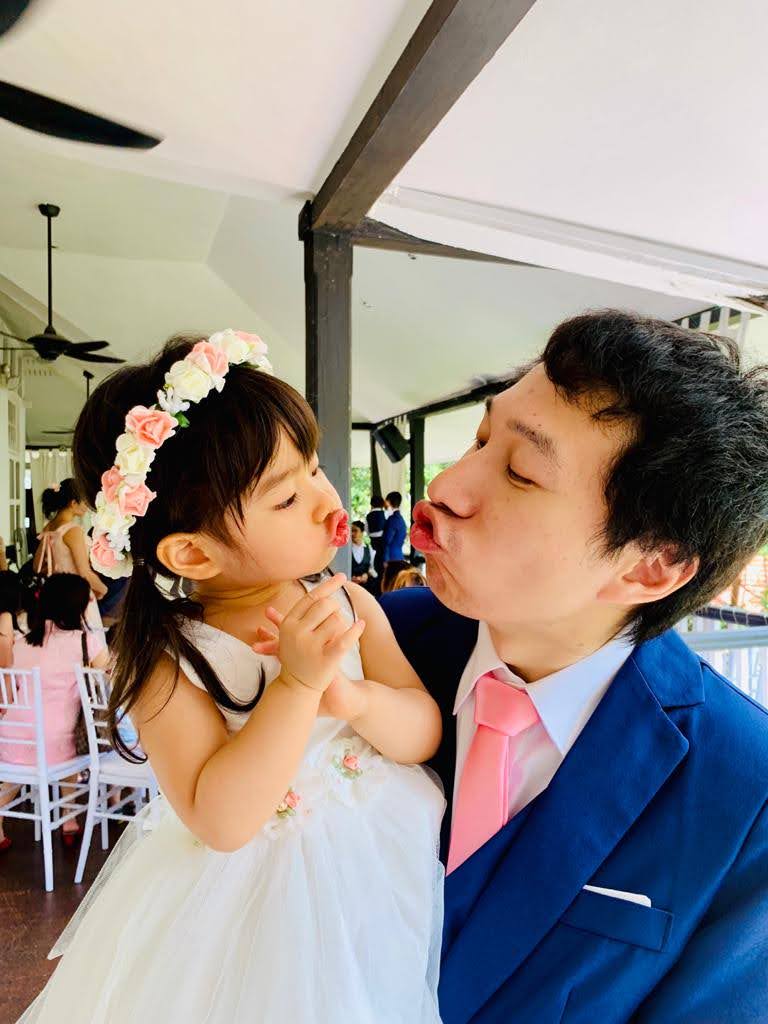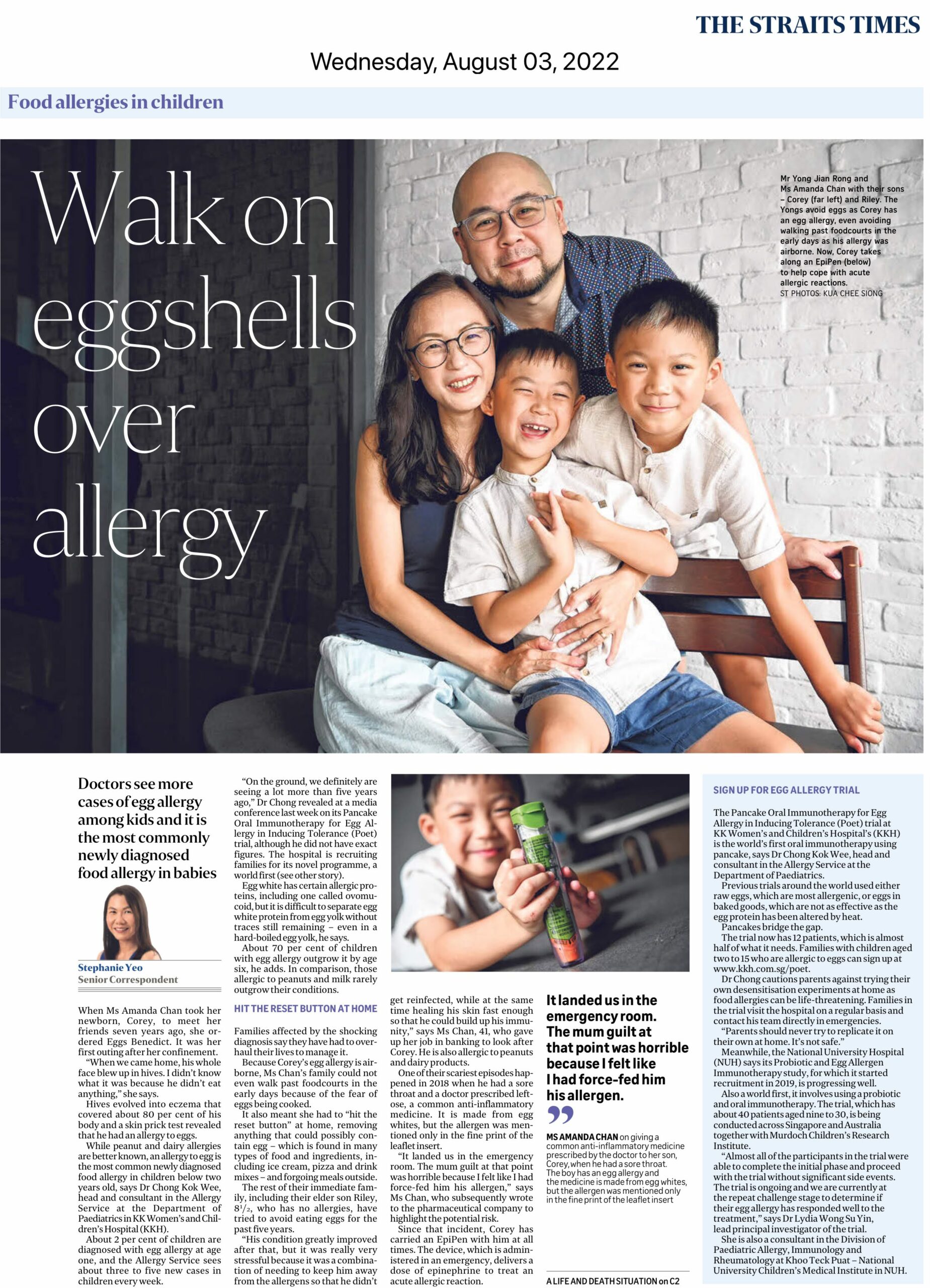
Last month, we featured interviews with Singaporean families, caregivers and a doctor to help raise awareness about the challenges and triumphs that allergy families go through.
This week, we are celebrating Father’s Day! Fathers, who are our first superheroes, play an equally supporting and important role in raising families, especially those with allergies because it’s often an “all hands on deck” situation.
We spoke to one of our volunteers, Mr. Tan Wenyang, and learnt more about the father’s perspective of parenting an allergic child and their role in giving support to the whole family.
Tell us your name and about your family.
My name is Wenyang. My wife, Ms Yuko Tanaka, and I have two daughters, Miri who is 8 years old and Airi who is 5 years old.
What are your child’s allergies?
My youngest daughter Airi is allergic to milk, eggs, kiwi, almond and brazil nuts. She has outgrown her allergies to wheat, peanut, walnut and cashew nuts.
How and when did you find out about your child’s allergies/eczema?
The first time we found out was when she was 2 months old; her skin had started to develop eczema with clear liquid oozing out. The doctor mentioned that it may be some kind of allergy. When we started giving food to Airi at 6 months old, we gave her somen (which is made of wheat) and she had hives. Then my wife gave her powdered milk and she vomited everything. That is when we brought her to an allergist and found out about her allergies.
What is the childcare arrangement at home like? Are you or your wife the main caregiver?
I try to help out as much as possible but my wife is the one who is primarily taking care of the children. I am in charge of entertainment and little things throughout the day. I play with the kids, help them with brushing their teeth, bathe and get them ready for bed.

Playing a game of Snakes and Ladders with the girls. (Photo: Tan Wenyang)
Generally, fathers tend to take a backseat when it comes to daily management of the child’s allergies/eczema. How do you contribute to navigating your daily family life?
That’s the same in my case as well, except for times when my wife is not at home. She mainly does the cooking for the family so she chooses the food we eat and reads all food labels. I try to help by inquiring about food allergies at the restaurants as well as looking for products that my daughter can eat, and I share this information with my wife.
Studies have shown that mothers tend to take the protector role (keeping their child away from allergens) while fathers tend to be the explorers (and expand their child’s life). How is it like for your family?
We started the food challenges at an early age with small amounts and it was a challenge for both of us to try to keep up with the schedule. My wife is the one maintaining the amount requested by the doctor and she reduces it whenever my daughter’s health is not in top condition. I do at times feel that maybe the amount does not need to be reduced as long as there is not too much of a reaction, but betting on my child’s life is a risk too great for me to take at the same time.
What has been your biggest challenge as an allergy dad and how have you overcome it?
The hardest stage was when we moved back to Singapore two years ago.
In Japan, most restaurants have an allergen list, and serve food that are free from the top 8 allergens, thus offering many choices of food products to choose from. In Singapore, places with food that my daughter could eat fell to only a handful, and within which served just a limited number of food products and varieties that we could buy. We did a lot of research asking restaurants about their menus, whether their foods contain her allergens and always brought food along for my daughter in case the restaurant did not have anything she could eat. After some time, we came up with a few chain restaurants that we can bring our daughter to.
The restaurants that we go to are Sushiro, Din Tai Fung, Gyu-Kaku, Suju and YAYOI. Most Japanese restaurants that are owned by Japanese chefs are a safer choice since we’d know the ingredients they use.
Being on 100% high alert when taking care of my allergic child is kind of my biggest challenge. This includes checking and making sure I bring along her Epi-Pen and also making sure what she eats is safe. I can’t say I am very good at it even after many years but it does become second nature to check before she eats. Practice makes progress and I am still learning as she grows.
Usually, we see that allergy mums are more active in support groups. What is your take on this? What motivates you as an allergy dad to participate in SPEAK volunteer work?
Mums are the usual primary caretaker, and their natural instincts and protectiveness towards the child make sense. For me, moving from living in Japan to Singapore, I saw the struggles my wife faced and I believe many mums with allergic children face the same problems. I want to help change the current situation and make lives better, not only for my wife, but the greater community as well.
Getting diagnosed with food allergies involves a lot of emotional and financial burden on allergic families. How can fathers support their wife and family during such tough times?
There is a lot of stress involved in making sure what my daughter eats is safe.
Moreover, all the check-ups, food challenges, and consultations add up. Food that my daughter can consume safely is often more costly than non-allergy friendly products. It’s a long-term effort that doesn’t have a deadline and will probably go on forever (unless she outgrows everything). My wife probably feels the stress much more than I could imagine, and I think being involved, learning more and helping out in as many ways as possible help to make things easier for her by offloading the stress even if just for a while. It’s a team effort for which both parties have to contribute and live with.

Having fun at a wedding. (Photo: Tan Wenyang)
What is your message to all other allergy dads?
Be involved. There are always ways in which you can help. Your wife will appreciate it and you will have a closer relationship with everyone in the family.
Happy Father’s Day to all our readers!
Check out these studies that have explored differences in parental experiences and responsibilities between mums and dads.
– Hoehn, Jessica L. et al. “Parents Of Children With Food Allergy: Gender Differences In Perceived Impact And Perceived Food Allergy Severity”. Journal Of Pediatric Psychology, 2016, p. jsw059. Oxford University Press (OUP), doi:10.1093/jpepsy/jsw059. Accessed 18 June 2021.
– Moen, Øyfrid Larsen et al. “Parents Experiences Raising A Child With Food Allergy; A Qualitative Review”. Journal Of Pediatric Nursing, vol 46, 2019, pp. e52-e63. Elsevier BV, doi:10.1016/j.pedn.2019.02.036. Accessed 18 June 2021.
___________________________________________________________________
Want to help raise awareness for allergies and have fun in the process? Join our allergic monsters colouring competition and win attractive book vouchers and skin care hampers. Hurry, only 2 weeks more to submit your entry! For more details, go to https://speakallergy.org.sg/contest/



